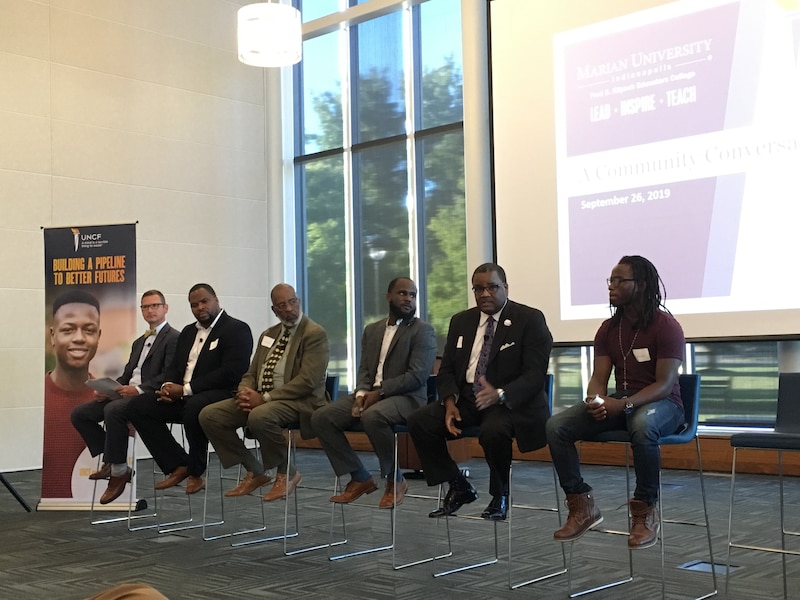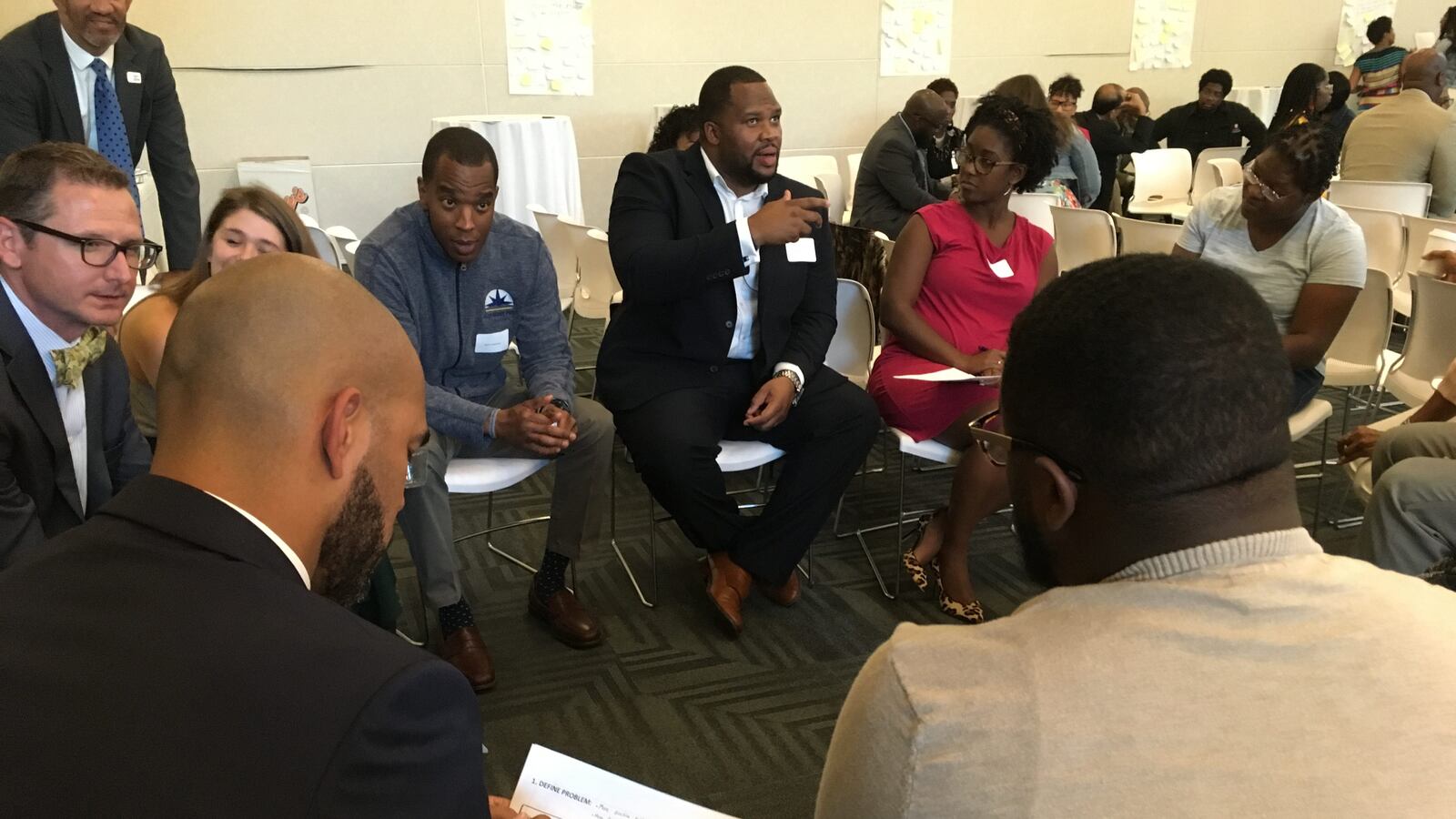Former Providence Cristo Rey Principal Brian Dinkins still remembers the high school math teacher who looked at him and said, “You’re a failure.”
He was encouraged instead to play football, which paved his path to college. But after his college sports days, Dinkins returned to his Indianapolis high school as a substitute teacher. And as he worked with students who reminded him of his younger self, Dinkins wished someone had coached him toward what really ended up being his career: education.
So that’s the strategy Dinkins is taking to support more black men in becoming educators.
“I think what is critical is identifying those individuals who might not see education from the start,” said Dinkins, who is now an education consultant and adjunct professor of educational leadership at Marian University.
Marian’s Klipsch Educators College and UNCF hosted a community conversation Thursday night on bolstering the pipeline of diverse teachers and school administrators, particularly black men. About 50 people turned out to hear panelists, including Dinkins, talk about their backgrounds and their work supporting educators of color.
States across the nation struggle with racial representation in their teaching ranks, and so often a school’s educators don’t look like their students — which feeds the dearth of diversity. Teachers of color, particularly black teachers, can also face barriers to licensure and challenges to keeping them in the classroom. But a number of studies have shown that black students greatly benefit from having a black teacher — as do other students — which can lead to outcomes such as higher test scores, fewer suspensions, and a better outlook on school.
In 2017, Indiana’s teaching ranks were 93 percent white, according to state data. This year, Indiana scrapped a basic skills test seen as a barrier to teacher candidates of color.
At Marian, the recently revamped five-year teacher prep program has focused on recruiting students of color, aiming to increase diversity from single-digit proportions to 40% of each class. This year, about one-third of the freshman class are people of color, according to senior vice president and educators college dean Kenith Britt.
That includes students like Solomon Martin, a freshman student ambassador who sat on Thursday night’s panel and sought to introduce himself to each person in attendance. He talked about being singled out for the opportunity to attend Marian to study education, getting called out of class to talk to a recruiter.
“We have to spike the confidence in ourselves to want to learn before we even make it to being educators,” Martin said.
Tindley Summit Principal David McGuire emphasized the responsibility he feels to help other young black men the way his mentors helped him — to “send the elevator back down,” as one of his college professors put it.
“You have to make sure that you don’t mess it up for those coming up,” McGuire said, “and you also have to make sure that you see what somebody else saw in you, and that you carry them along as well.”
Lawrence Township Superintendent Shawn Smith also called on black educators to lift up other young black men. He brought several black teachers and administrators from his district to the event: “So please, people, don’t tell me they’re not in the state of Indiana. I’ve got your next level.”
Event participants finished the night by breaking into small groups to discuss possible solutions to five challenges:
- Increasing pathways into teaching and educational leadership careers
- Helping those already in the profession navigate promotions and leadership changes
- Increasing the esteem of the profession
- Helping teachers of color cope with the trauma in their own lives and the lives of their students
- Removing barriers surrounding standardized testing



